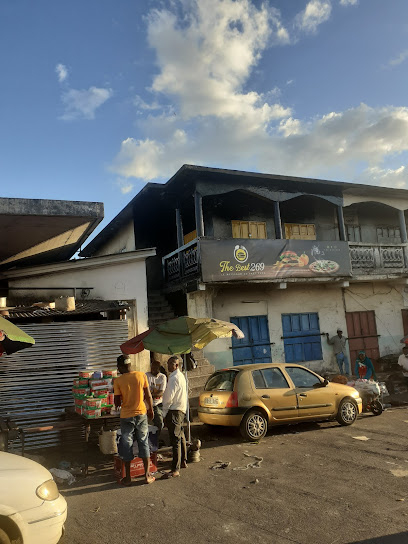
Iconi: The Hidden Gem of Comoros
Nestled on the island of Grande Comore, Iconi is a small yet captivating town that offers visitors a rich blend of history, culture, and natural beauty. This coastal town is known for its picturesque landscapes, featuring lush greenery, dramatic cliffs, and pristine beaches that invite you to relax and unwind. Iconi is steeped in history, with its origins tracing back to the early settlement of the Comoros archipelago. The town is home to several historical landmarks, including the Iconi Mosque, which dates back to the 14th century. Walking through the narrow streets of the town, you can feel the echoes of the past, with traditional Swahili architecture and vibrant markets that offer a glimpse into the daily life of the locals. Nature enthusiasts will find Iconi to be a paradise. The surrounding area boasts stunning natural attractions such as the Karthala volcano, one of the world's largest active volcanoes. Hiking up to its summit provides breathtaking views of the island and the Indian Ocean. For those who prefer the sea, the clear waters around Iconi are perfect for snorkeling and diving, revealing a colorful underwater world teeming with marine life.
Local tips in Iconi
- Visit the Iconi Mosque early in the morning to avoid the crowds and enjoy a peaceful experience.
- Hire a local guide for your hike up the Karthala volcano to ensure you take the safest and most scenic routes.
- Try local delicacies at the town's markets, such as fresh seafood and tropical fruits.
- Bring cash, as many local vendors do not accept credit cards.
- Respect local customs and dress modestly, especially when visiting religious sites.
Iconi: The Hidden Gem of Comoros
Nestled on the island of Grande Comore, Iconi is a small yet captivating town that offers visitors a rich blend of history, culture, and natural beauty. This coastal town is known for its picturesque landscapes, featuring lush greenery, dramatic cliffs, and pristine beaches that invite you to relax and unwind. Iconi is steeped in history, with its origins tracing back to the early settlement of the Comoros archipelago. The town is home to several historical landmarks, including the Iconi Mosque, which dates back to the 14th century. Walking through the narrow streets of the town, you can feel the echoes of the past, with traditional Swahili architecture and vibrant markets that offer a glimpse into the daily life of the locals. Nature enthusiasts will find Iconi to be a paradise. The surrounding area boasts stunning natural attractions such as the Karthala volcano, one of the world's largest active volcanoes. Hiking up to its summit provides breathtaking views of the island and the Indian Ocean. For those who prefer the sea, the clear waters around Iconi are perfect for snorkeling and diving, revealing a colorful underwater world teeming with marine life.
When is the best time to go to Iconi?
Unmissable attractions to see
Plage de Moya
Experience the natural beauty and tranquility of Plage de Moya, a stunning beach in Comoros perfect for relaxation and adventure.
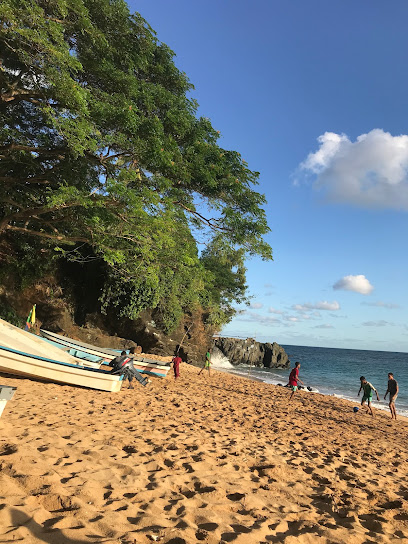
Le Gala - Mohéli
Explore the natural beauty and rich culture of Mohéli at Le Gala, a hidden gem in the heart of Comoros that promises unforgettable experiences.
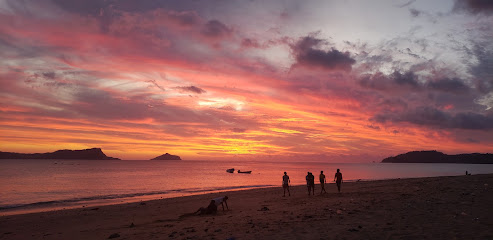
Essential places to dine
Restaurant & Grill Le Coraya
Discover authentic Comorian cuisine at Restaurant & Grill Le Coraya in Itsandra - where every dish tells a story.
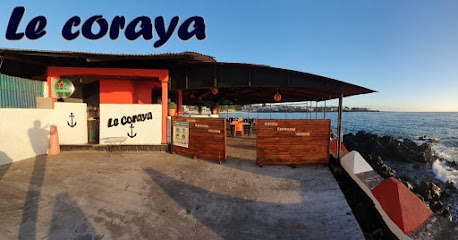
MoCafe
Discover the authentic flavors of Comoros at MoCafe in Moroni – where culinary tradition meets modern dining.
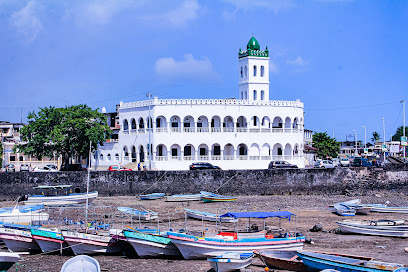
Restaurant L'Escale
Discover the authentic taste of Comoros at Restaurant L'Escale in Moroni – where local flavors meet stunning views.
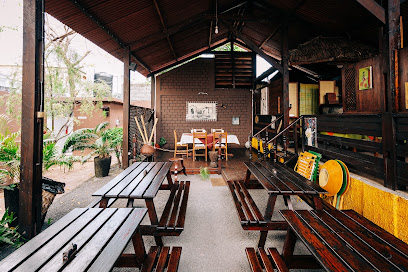
Wasta Boulangerie snack
Discover authentic Comorian flavors at Wasta Boulangerie in Asgaraly Moroni—where every bite tells a story.
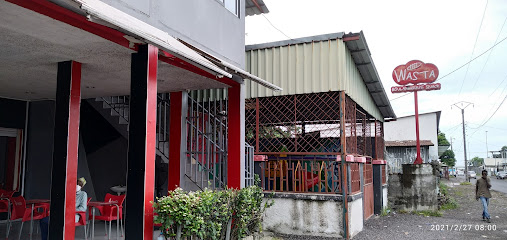
New Select Restaurant
Discover authentic Comorian cuisine at New Select Restaurant in Moroni - where every meal tells a story.
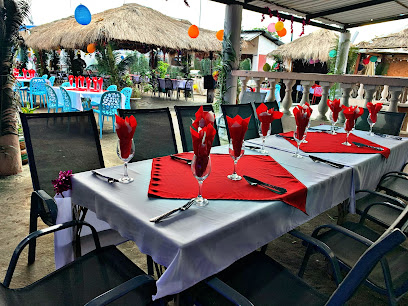
Comores Pizza
Experience authentic pizza at Comores Pizza in Moroni - where local flavors meet traditional recipes in a cozy setting.
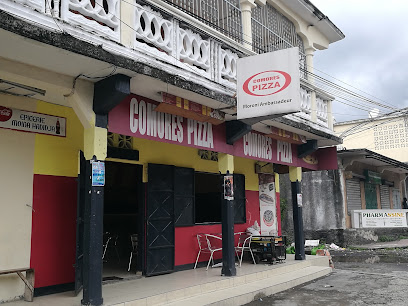
CHEZ NINI BAR GRILL
Experience authentic Comorian cuisine at Chez Nini Bar Grill in Mitsamiouli – where every dish tells a story.
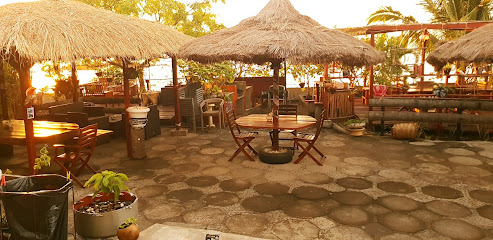
Chicha le Marseillais
Experience authentic Comorian cuisine at Chicha le Marseillais in Iconi Malouzine - where every dish tells a story.
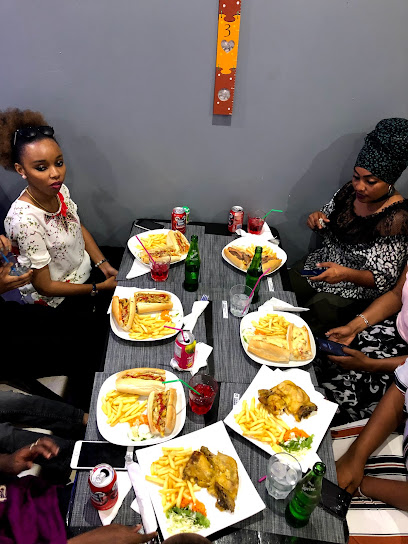
The Best269
Experience delectable fast food with a local twist at The Best269 in Kavkaïvo, Moroni - your go-to spot for flavorful meals.
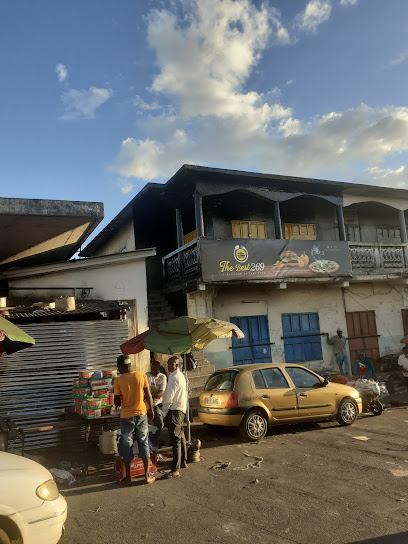
Le COMOCO
Discover authentic Comorian cuisine at Le COMOCO in Moroni – where every meal tells a story through flavor.
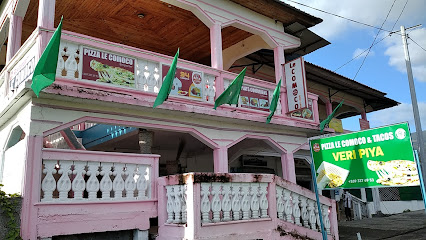
L'AQUARIUM SARL
Experience fresh seafood and local flavors at L'Aquarium Sarl in Mvouni, Comoros - where every meal tells a story.
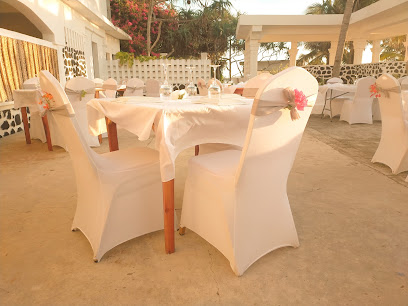
Restaurant LE COMOCO
Discover authentic Comorian flavors at Restaurant LE COMOCO in Moroni - a culinary journey awaits you!
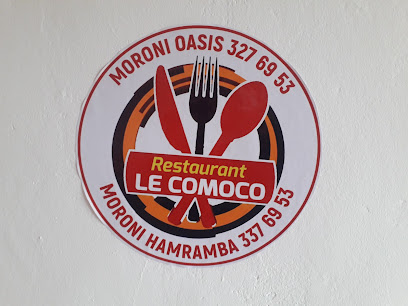
Restaurant Rimoindzawo
Experience authentic Comorian flavors at Restaurant Rimoindzawo, where every dish tells a story amidst Moroni's charming ambiance.

Chez Med Resto
Experience authentic Comorian cuisine at Chez Med Resto in Moroni - where local flavors meet warm hospitality.

Qamar Restaurant
Experience authentic Comorian cuisine at Qamar Restaurant in Moroni – where flavor meets tradition in a welcoming atmosphere.
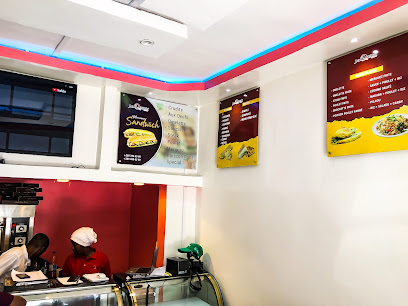
Markets, malls and hidden boutiques
Moheli Laka Lodge
Experience the serene beauty and cultural richness of Moheli Laka Lodge, your gateway to the stunning Comoros Islands.

Bouni Beach
Discover the tranquil beauty of Bouni Beach, a picturesque coastal paradise in Comoros, perfect for relaxation and adventure.
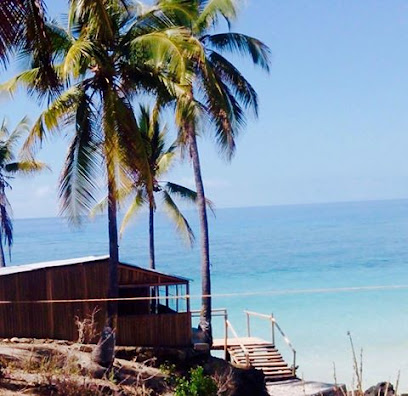
Dos du Dragon
Discover the breathtaking beauty of Dos du Dragon, a scenic hiking paradise in Mitsamiouli, Comoros, perfect for nature lovers and adventurers.
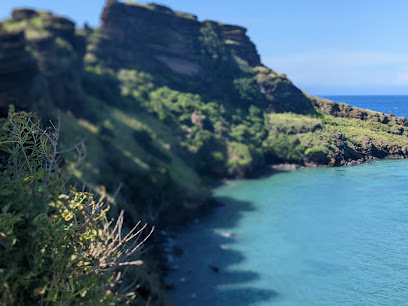
Adore Comores
Explore the beauty and culture of the Comoros Islands with Adore Comores, your premier tour operator for unforgettable adventures.
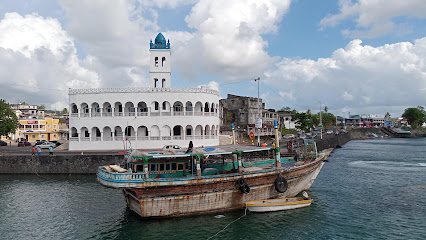
Comores Market
Explore the vibrant Comores Market in Moroni for a taste of local culture with fresh produce and unique culinary delights.

Place Chindoni
Explore Place Chindoni: A vibrant shopping destination in Koimbani, Comoros, blending local culture with modern retail experiences.
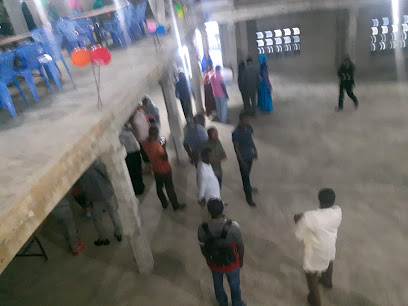
ComoresBazar, Mutsamud
Experience the vibrant local culture and diverse shopping at ComoresBazar in Mutsamud, your gateway to unique finds and local flavors.
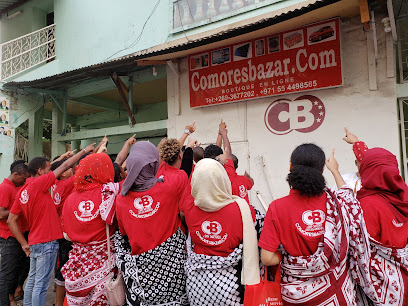
Le Gala - Mohéli
Discover the charm of Mohéli at Le Gala, where local culture meets stunning natural beauty in an unforgettable setting.
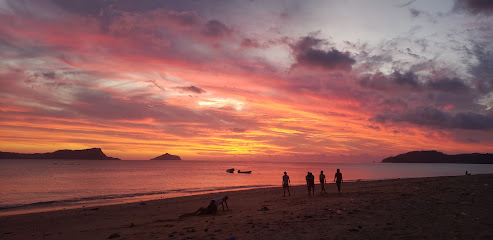
NUN SHOP
Explore local flavors and ingredients at NUN SHOP in ICONI Malouzini, Comoros - a supermarket that brings you closer to the island's culinary heritage.
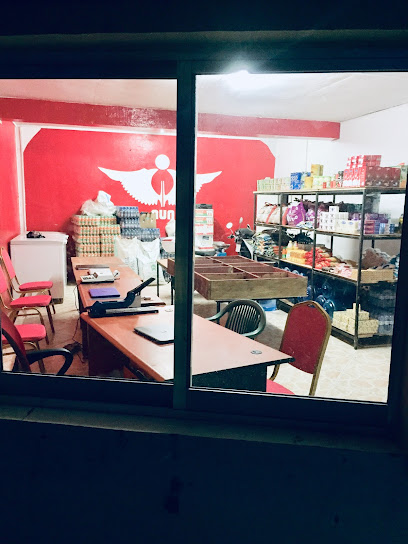
Magasin découvertes
Discover the latest electronics and local specialties at Magasin Découvertes in Moroni, a hub of technology and culture in the Comoros.
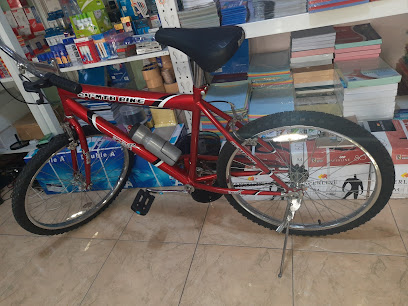
MAG MARKET
Experience the local flavor at MAG MARKET, a charming supermarket in Moroni, Comoros, featuring fresh produce and unique local goods.
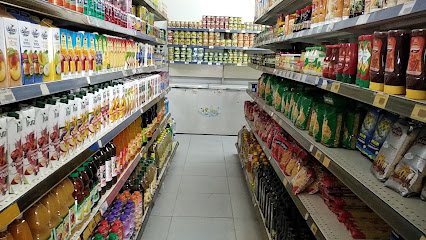
MAGASIN INDIA
Explore the vibrant fashion scene at MAGASIN INDIA, Moroni's premier clothing store offering unique local styles and contemporary designs.
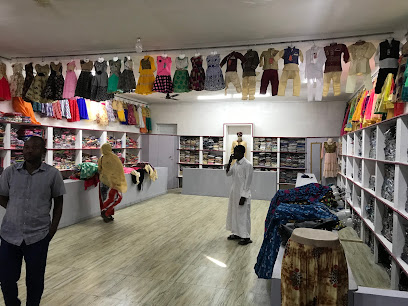
Centre Commmercial Comorien
Explore the vibrant shopping scene at Centre Commercial Comorien in Moroni, where local culture meets international brands in a lively atmosphere.

Iconi
Explore Iconi, a vibrant town in Comoros with rich cultural heritage, stunning landscapes, and warm hospitality, perfect for an unforgettable travel experience.
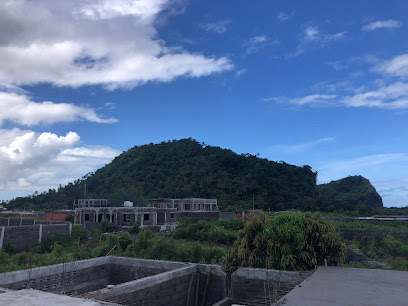
Local Phrases
-
- HelloSalam
[sa-laam] - GoodbyeKwaheri
[kwa-he-ri] - YesEwe
[e-we] - NoAyi
[a-yi] - Please/You're welcomeTafadhali
[ta-fa-dha-li] - Thank youAsante
[a-san-te] - Excuse me/SorrySamahani
[sa-ma-ha-ni] - How are you?U hali gani?
[u ha-li ga-ni] - Fine. And you?Salama. Na wewe?
[sa-la-ma. na we-we] - Do you speak English?Unasema Kiingereza?
[u-na-se-ma ki-in-ge-re-za] - I don't understandSifahamu
[si-fa-ha-mu]
- HelloSalam
-
- I'd like to see the menu, pleaseNingependa kuona menyu, tafadhali
[nin-ge-pen-da ku-o-na me-nyu, ta-fa-dha-li] - I don't eat meatSili nyama
[si-li nya-ma] - Cheers!Afya!
[af-ya] - I would like to pay, pleaseNingependa kulipa, tafadhali
[nin-ge-pen-da ku-li-pa, ta-fa-dha-li]
- I'd like to see the menu, pleaseNingependa kuona menyu, tafadhali
-
- Help!Usaidizi!
[u-sai-di-zi] - Go away!Ondoka!
[on-do-ka] - Call the Police!Piga polisi!
[pi-ga po-li-si] - Call a doctor!Piga daktari!
[pi-ga dak-ta-ri] - I'm lostNimepotea
[ni-me-po-te-a] - I'm illNinaumwa
[ni-na-um-wa]
- Help!Usaidizi!
-
- I'd like to buy...Ningependa kununua...
[nin-ge-pen-da ku-nu-nu-a] - I'm just lookingNatazama tu
[na-ta-za-ma tu] - How much is it?Ni bei gani?
[ni bei ga-ni] - That's too expensiveHicho ni ghali sana
[hi-cho ni gha-li sa-na] - Can you lower the price?Unaweza kupunguza bei?
[u-na-we-za ku-pun-gu-za bei]
- I'd like to buy...Ningependa kununua...
-
- What time is it?Saa ngapi?
[sa-a ngap-i] - It's one o'clockNi saa moja
[ni sa-a mo-ja] - Half past (10)Nusu ya kumi
[nu-su ya ku-mi] - MorningAsubuhi
[a-su-bu-hi] - AfternoonMchana
[m-cha-na] - EveningJioni
[jo-ni] - YesterdayJana
[ja-na] - TodayLeo
[le-o] - TomorrowKesho
[ke-sho] - 1Moja
[mo-ja] - 2Mbili
[m-bi-li] - 3Tatu
[ta-tu] - 4Nne
[n-ne] - 5Tano
[ta-no] - 6Sita
[si-ta] - 7Saba
[sa-ba] - 8Nane
[na-ne] - 9Tisa
[ti-sa] - 10Kumi
[ku-mi]
- What time is it?Saa ngapi?
-
- Where's a/the...?Iko wapi...?
[i-ko wa-pi] - What's the address?Anuani ni ipi?
[a-nua-ni ni i-pi] - Can you show me (on the map)?Unaweza kunionyesha (kwenye ramani)?
[u-na-we-za ku-ni-o-nye-sha (kwe-ne ra-ma-ni)] - When's the next (bus)?Basi lijalo litakuwa saa ngapi?
[ba-si li-ja-lo li-ta-ku-wa sa-a ngap-i] - A ticket (to ....)Tikiti (kwenda ....)
[ti-ki-ti (kwen-da)]
- Where's a/the...?Iko wapi...?
History of Iconi
-
Iconi, one of the oldest towns in the Comoros archipelago, traces its roots back to early settlements by Swahili traders and Bantu-speaking people. The town's strategic coastal location made it a significant hub for trade and cultural exchange in the Indian Ocean.
-
During the medieval period, Iconi became a bustling port town, part of the broader Swahili Coast trading network. Merchants from the Arabian Peninsula, Persia, India, and even China frequented its markets, bringing goods such as spices, textiles, and ceramics. This interaction led to a rich blend of cultural influences, visible in the town's architecture and customs.
-
In the 16th century, Portuguese explorers, seeking to dominate the spice trade, arrived at Iconi. Though their influence was relatively short-lived, their encounters left behind a legacy of fortified structures and a brief period of European interaction with the local Swahili culture.
-
In the late 17th century, Iconi, along with the rest of the Comoros, came under the influence of Omani Arabs. The period of Omani rule saw the introduction of new agricultural techniques, as well as the spread of Islam, which became deeply entrenched in the local culture and remains a significant aspect of Iconi's identity today.
-
The late 19th century marked the beginning of French colonial rule in the Comoros. Iconi, like other parts of the archipelago, experienced significant changes, including the introduction of new administrative structures, educational systems, and infrastructure projects. This period also saw the blending of French culture with the existing Swahili and Arab influences.
-
Iconi played a role in the broader Comorian struggle for independence, which culminated in 1975. Local leaders and residents participated in movements advocating for self-governance and the end of colonial rule. The town's history during this time reflects the broader national narrative of resistance and eventual liberation.
-
Today, Iconi is a vibrant testament to its diverse historical influences. The town's architecture, festivals, and daily life reflect a unique blend of African, Arab, and European elements. Key cultural sites, such as historic mosques and traditional Swahili houses, attract visitors and serve as reminders of Iconi's rich past.
Iconi Essentials
-
Iconi is located on the island of Grande Comore in the Comoros archipelago. The nearest international airport is Prince Said Ibrahim International Airport (HAH) in Moroni, the capital city of Comoros, which is approximately 20 kilometers away from Iconi. From the airport, you can take a taxi or arrange for a hotel shuttle to reach Iconi. The journey typically takes around 30 minutes by road.
-
Iconi is a small town, and many of its attractions are within walking distance. For longer trips, local taxis and shared minibuses (known as 'bushtaxis') are available and relatively inexpensive. Renting a car can also be a convenient option for exploring the surrounding areas at your own pace. It's advisable to agree on fares with taxi drivers before starting your journey.
-
The official currency in Comoros is the Comorian Franc (KMF). Credit cards are accepted in some hotels, restaurants, and shops, but it is advisable to carry cash, especially in smaller establishments and rural areas. ATMs are available in Moroni, but they might not be as prevalent in Iconi, so it's wise to withdraw sufficient cash before traveling to ensure you have enough funds.
-
Iconi is generally a safe destination for tourists. However, like any travel destination, it is advisable to take standard precautions. Avoid walking alone at night in unfamiliar areas and keep an eye on your belongings in crowded places. While there are no specific high-crime areas targeting tourists, it is always best to stay vigilant and aware of your surroundings.
-
In case of emergency, dial 17 for police assistance and 15 for medical emergencies. The local police station and medical facilities are available in Iconi. It is recommended to have travel insurance that covers medical emergencies. For minor health issues, there are pharmacies in the town where you can purchase over-the-counter medications.
-
Fashion: Do dress modestly, especially when visiting religious sites. Avoid wearing revealing clothing. Religion: Do respect local customs and traditions. Always cover your head when entering mosques. Public Transport: Do be respectful and give up your seat to elderly passengers. Don't eat or drink on public transport. Greetings: Do greet people with a handshake. A slight bow of the head is also a sign of respect. Eating & Drinking: Do try local delicacies and accept food offerings graciously. Don't refuse hospitality, as it is considered impolite.
-
To experience Iconi like a local, visit the local markets where you can buy fresh produce and traditional Comorian goods. Engage with locals, as they are often friendly and willing to share stories about the town's history and culture. Don't miss visiting the historic forts and mosques that reflect the rich history of the region. For a unique experience, attend a traditional dance or music performance, which showcases the vibrant cultural heritage of Iconi.
Nearby Cities to Iconi
-
Things To Do in Moroni
-
Things To Do in Ouani
-
Things To Do in Domoni
-
Things To Do in Acoua
-
Things To Do in Sada
-
Things To Do in Chiconi
-
Things To Do in Koungou
-
Things To Do in Dembeni
-
Things To Do in Mamoudzou
-
Things To Do in Chirongui
-
Things To Do in Bandrele
-
Things To Do in Mahajanga
-
Things To Do in Majunga
-
Things To Do in Nosy Be
-
Things To Do in Antsiranana




